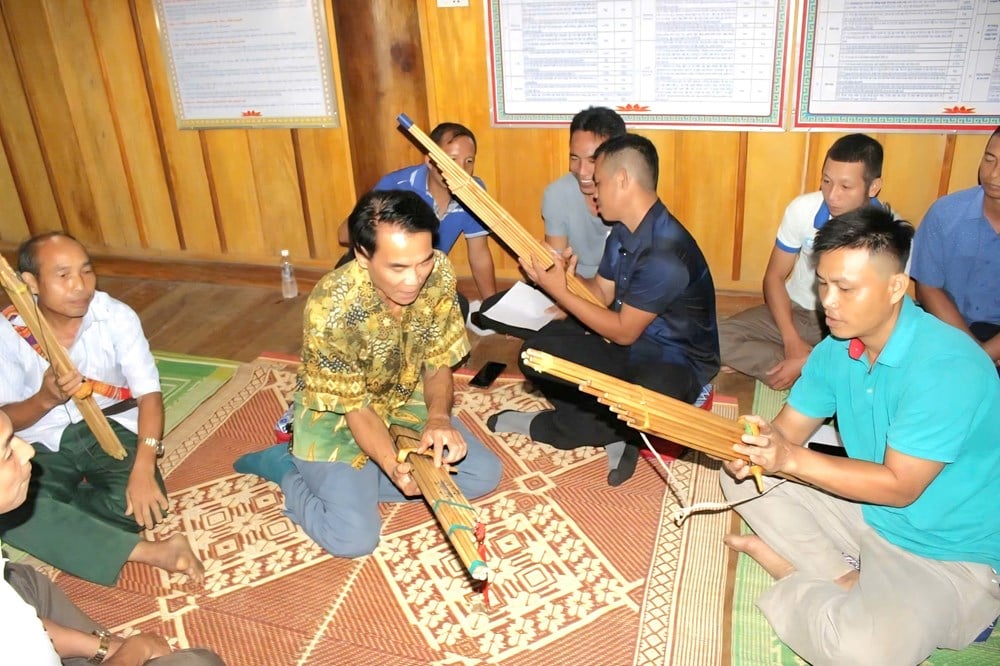
In the vast Thanh land, people like Mr. Cao Bang Nghia (76 years old, Hoi Xuan commune) or Mr. Ha Nam Ninh (Ba Thuoc commune) are rekindling the Thai cultural fire every day with their own passion and perseverance.
Classes started from the stilt house
Anyone who has visited Mr. Cao Bang Nghia’s stilt house cannot help but be surprised: every little corner is cherished by him like a miniature museum. Sets of bronze gongs, panpipes, Mong flutes, leaf panpipes… have been collected and preserved by him for decades.
But the objects are only part of it. What makes people more impressed is the vast knowledge of the Thai people's writing, language and customs that he preserved in every manuscript page and every rare document that remains.
Born to the sound of babbling brooks and raised by his father's flute, Thai culture permeated him from an early age. The opportunity that brought him from the irrigation industry to cultural work opened a journey of lifelong attachment to his ethnic heritage.
For many years holding the position of Head of the Cultural Department, then Head of the Propaganda Department of the Quan Hoa District Party Committee, he was always concerned about the risk of cultural loss.
“As a Thai, learning about Thai culture is also finding yourself. Losing culture is losing an entire nation,” he said, his eyes downcast.
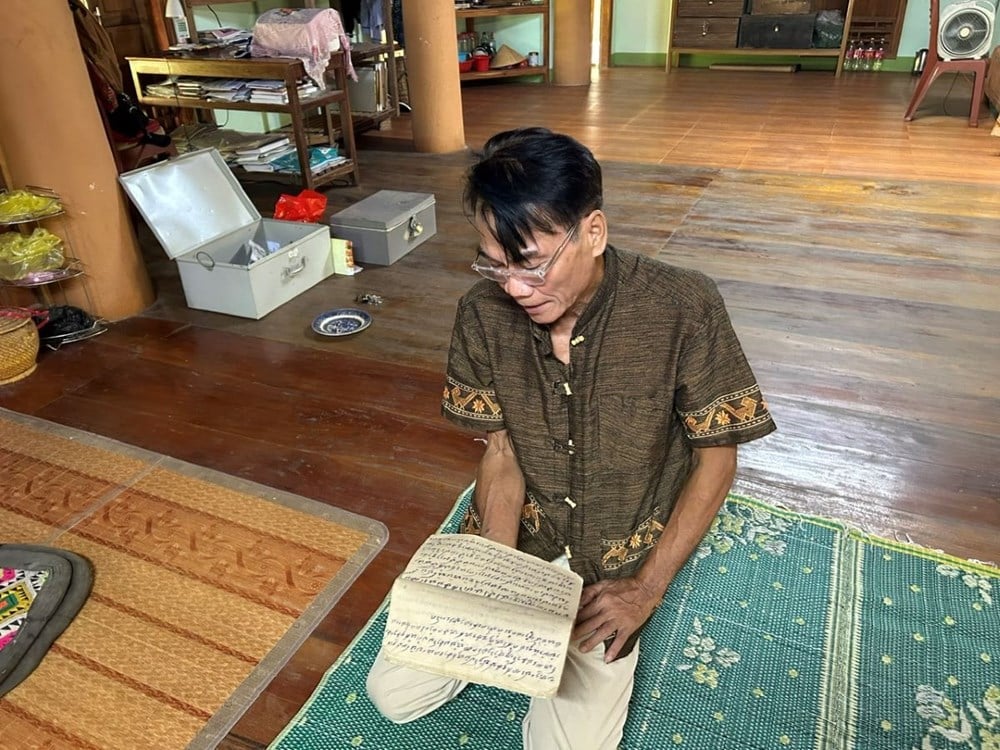
Despite his old age and poor health, Mr. Nghia still quietly preserves the "soul" of the community in his own way: opening a Thai language class at home, teaching panpipes, funeral panpipes, and bamboo flutes to children; advising the government to open a folk culture training class for grassroots cadres; establishing the Panpipe Club and the Quan Hoa District Folk Culture Club (old) to create a place for people with the same passion.
The first Thai classes he opened more than a decade ago had only a few people coming, mostly the elderly who wanted to reread ancient family books. Gradually, his reputation spread far and wide. Commune officials, youth union members, teachers… came to ask to study.
Up to now, he has taught ancient Thai script to more than 220 people; taught panpipes to dozens of students, Mong panpipes to 7 people, and bamboo flutes to 20 children in the neighborhood.
No classroom has chalk. No tuition. Only a white-haired teacher patiently sits beside a bamboo bed, reading each ancient word. To make the students interested, he incorporates Thai proverbs, epic poems, and folk songs into his lectures so that words are not just words, but also the living culture behind them.
Slowly but surely, the Thai learning movement in Quan Hoa (old) was given new life thanks to him.
The enduring torchbearers of modern times
Not only in Quan Hoa (old), but also in Ba Thuoc district (old), Mr. Ha Nam Ninh also spent nearly half of his life traveling around villages to collect ancient Thai documents.
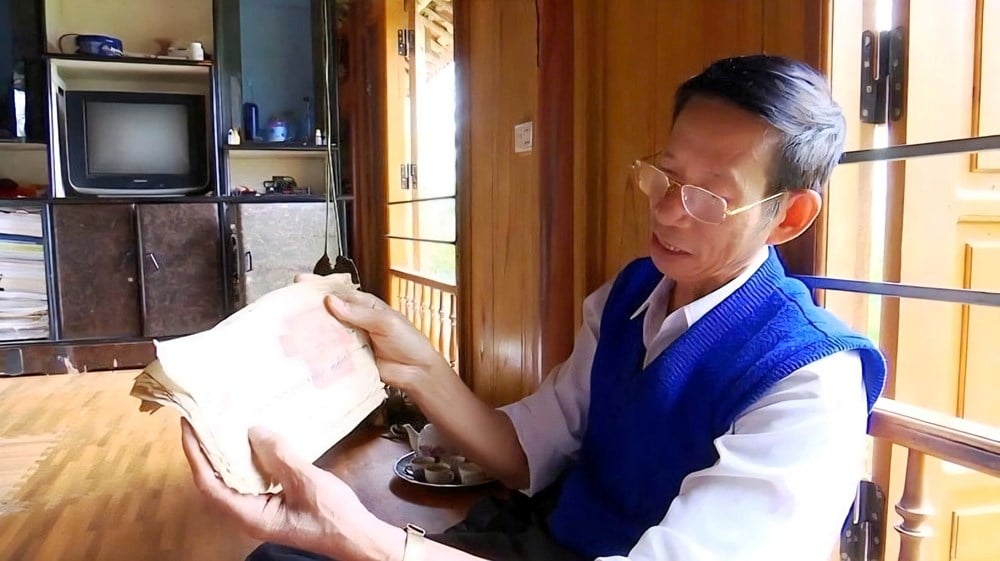
After retiring, he devoted himself to compiling lesson plans and opening free classes for the people. In 2007, the Department of Education and Training invited him to teach 13 teachers at Hong Duc University, laying the first bricks for the Thai language teaching project in Thanh Hoa.
In 2014, he was again invited to teach in the Thai language training program for officials, civil servants and teachers. Thanks to these special classes, many officials and teachers in the province were equipped with solid knowledge to incorporate Thai into their regular teaching.
Not only was he a dedicated teacher, he also collected and preserved hundreds of ancient books, becoming a rare and unique source of documents that no other library had.
In particular, he is the author and editor of three important documents: "Thanh Hoa Ancient Thai Alphabet", "Thai Ethnic Language Teaching Materials" (2008) and "Thai Language Training and Development Materials" (2014), valuable handbooks that mark his vision and dedication to Thai culture.
In 2015, he was awarded the title of Meritorious Artisan, a well-deserved recognition for his years of perseverance and dedication.
Along with the two men, there are many artisans, village elders, and prestigious people who work tirelessly day and night in the mountainous land of Thanh Hoa. They do not need the title of “teacher”, but do the work of a real teacher: teaching letters, teaching language, teaching how to love and respect one’s roots.
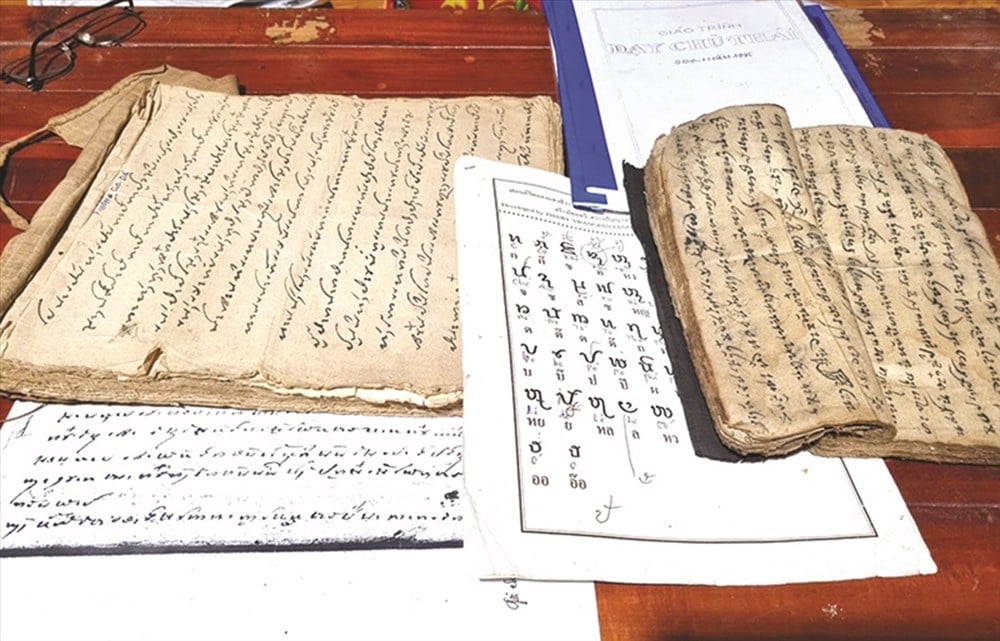
What they worry about most is not material things. It is the fading of culture among the young generation. Mr. Nghia sighed: “Nowadays people speak both Thai and Vietnamese, half sticky rice, half non-sticky rice. Few people care about Thai, and the same goes for customs. If culture is lost, it will be difficult to save it.”
This concern is not without reason. In modern life, traditional culture is sometimes neglected, even “commercialized”. The original values of language, family traditions, and customs are easily mixed up in the hustle and bustle of new life.
Many grassroots cultural cadres are still lacking in knowledge and passion. “I look at it and feel worried. Doing culture without love for it is hard to maintain,” he said sadly. But then he told himself he had to try, because behind him there were many students who would follow in his footsteps.
Perhaps the most beautiful thing about these “mountain teachers” is their perseverance. They do not have a November 20th to be honored. There are no flowers, no songs of gratitude. But they play an irreplaceable role in the cultural continuity of a community.
Their generosity raises a great suggestion for the education sector: preserving national culture is not only the responsibility of schools, but requires the cooperation of people who understand culture right in the community.
Thai writing classes in stilt houses, the recitation of the Khen Be pipes passed down from the trembling hands of the elderly are "lively lessons" that no textbook can replace.
Vietnamese Teachers' Day is not only an occasion to show gratitude to those who teach, but also an occasion to honor the silent teachers who are preserving the invisible but priceless values of culture and heritage of our ancestors.
Source: https://baovanhoa.vn/van-hoa/nhung-nguoi-thay-khong-buc-giang-giu-lua-van-hoa-thai-giua-dai-ngan-182481.html


![[Photo] President Luong Cuong receives President of the Senate of the Czech Republic Milos Vystrcil](/_next/image?url=https%3A%2F%2Fvphoto.vietnam.vn%2Fthumb%2F1200x675%2Fvietnam%2Fresource%2FIMAGE%2F2025%2F11%2F20%2F1763629737266_ndo_br_1-jpg.webp&w=3840&q=75)



![[Photo] Lam Dong: Panoramic view of Lien Khuong waterfall rolling like never before](/_next/image?url=https%3A%2F%2Fvphoto.vietnam.vn%2Fthumb%2F1200x675%2Fvietnam%2Fresource%2FIMAGE%2F2025%2F11%2F20%2F1763633331783_lk7-jpg.webp&w=3840&q=75)
![[Photo] National Assembly Chairman Tran Thanh Man holds talks with South Korean National Assembly Chairman Woo Won Shik](/_next/image?url=https%3A%2F%2Fvphoto.vietnam.vn%2Fthumb%2F1200x675%2Fvietnam%2Fresource%2FIMAGE%2F2025%2F11%2F20%2F1763629724919_hq-5175-jpg.webp&w=3840&q=75)
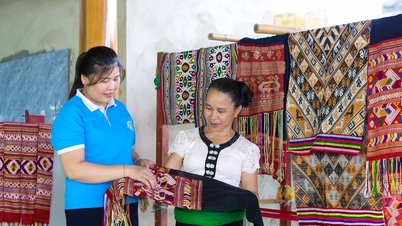

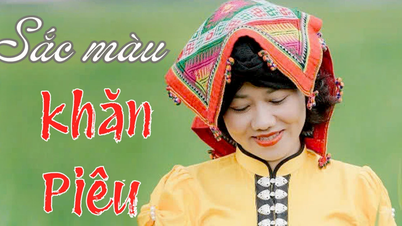

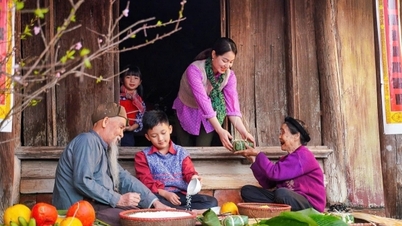










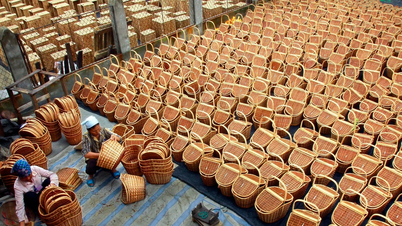



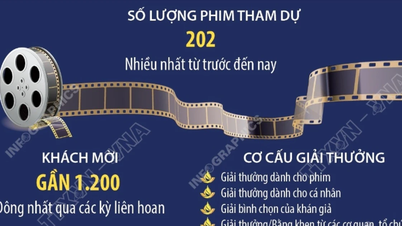





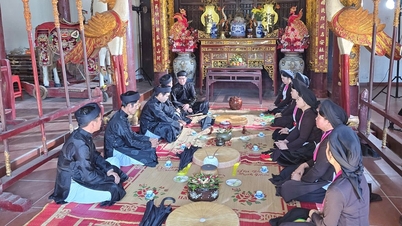
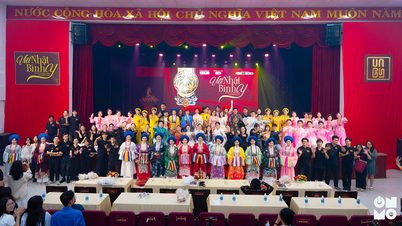












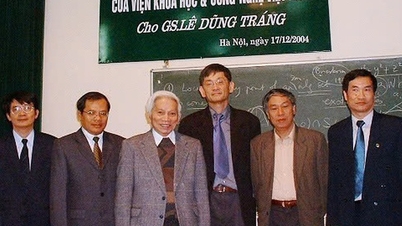
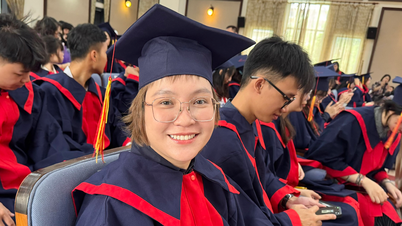


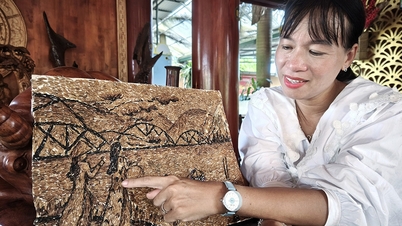
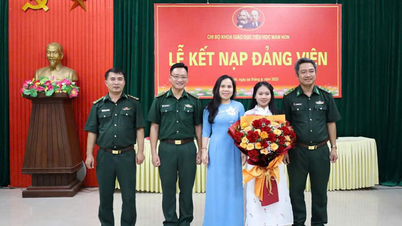






























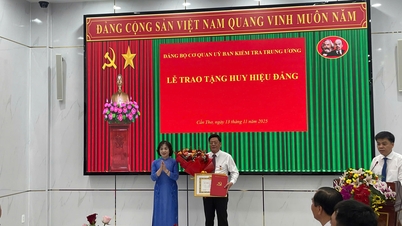


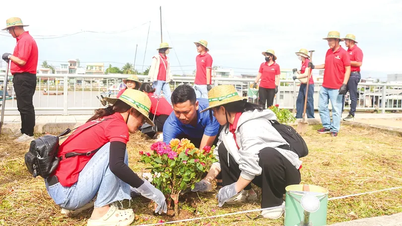

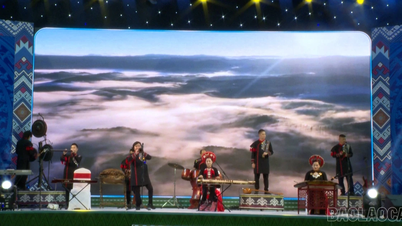

















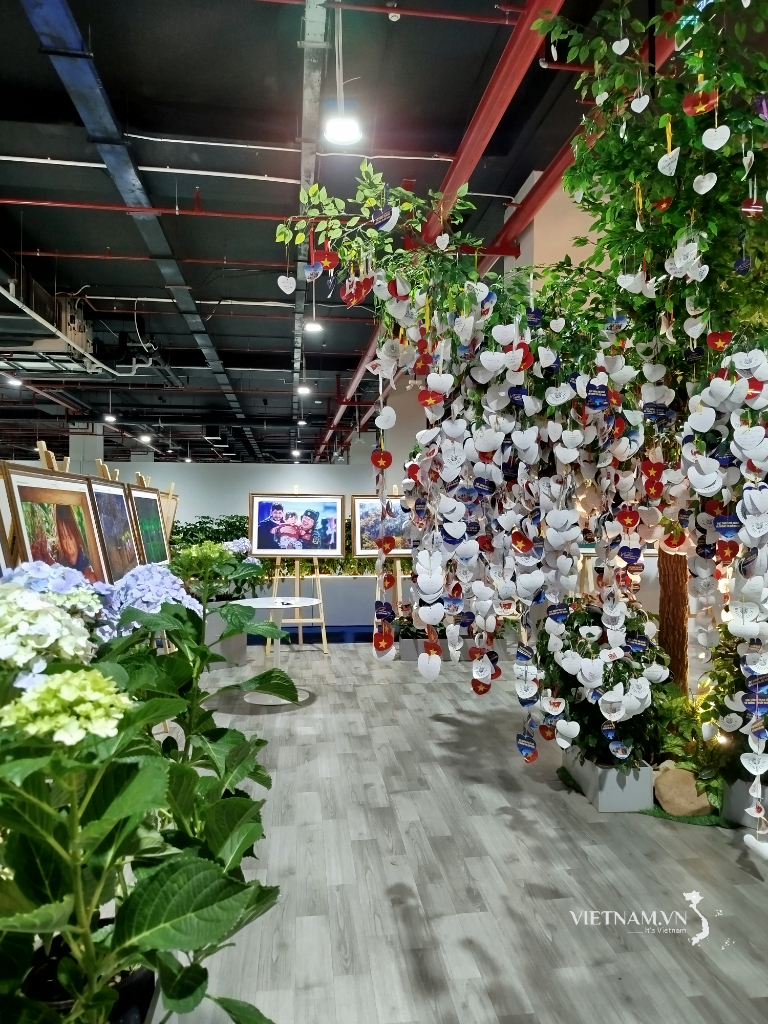


Comment (0)